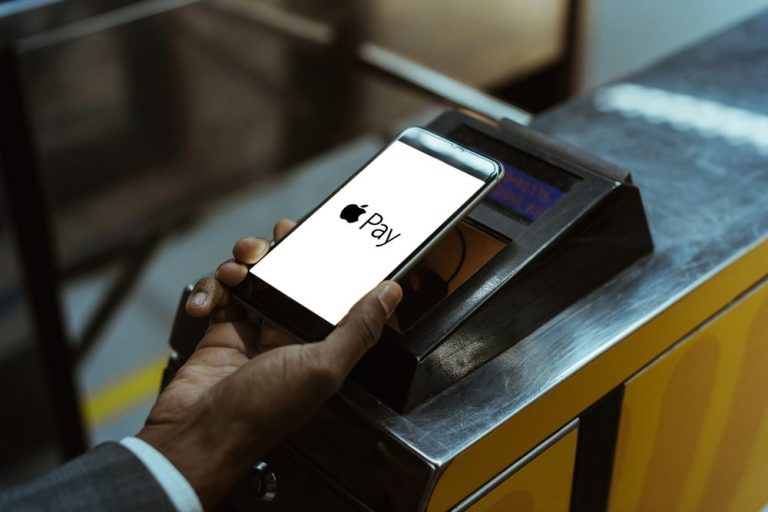EU Targets Apple Pay’s Exclusive Access to iPhone NFC Chip

Since the launch of the iPhone 6, all subsequent models of Apple’s smartphone have enabled contactless payments with the Apple Pay mobile wallet using near field communication (NFC) technology.
And unlike users of Android phones, iPhone users have no alternative options if they want to make NFC payments, as the terms of Apple’s developer agreement forbid third parties from using the iPhone’s NFC chip in such a way.
In an interview with PYMNTS, Claus Bunkenborg, the CEO of Nordic mobile wallet operator MobilePay, voiced an opinion that his peers perhaps share in the European mobile payments space:
“We would certainly like to use the NFC antenna to have an even smoother checkout […] we hope that the European Commission one way or the other can get Apple to open the infrastructure so that we can use NFC. Until that happens then we are using QR codes […] but if I could choose, I would prefer the NFC.”
Watch the Interview: Shared Vision Will Give EU Digital Wallets Sharper Competitive Edge on Global Scale
The good news for MobilePay and other European mobile wallets is that two EU regulatory developments may force the changes that Bunkenborg hopes for.
The first is an ongoing antitrust probe the European Commission (EC) opened into Apple Pay in 2020. In comments on the investigation’s progress in May, the EU’s competition commissioner Margrethe Vestager made it clear that Apple’s stranglehold on iPhone NFC usage doesn’t live up to the EC’s standards of fair play.
Accusing the firm of building a “closed ecosystem” around its devices and operating system, she said that “by excluding others from the game, Apple has unfairly shielded its Apple Pay wallet from competition. If proven, this behavior would amount to abuse of dominant position, which is illegal under our rules.”
In her speech, Vestager also indicated that the EU’s Digital Markets Act (DMA), formally adopted by the European Parliament this month, will directly affect the EU’s digital payments market and that the EC’s Apple Pay probe will inform future applications of the regulation.
Read more: Apple Faces EU Antitrust Charges Over NFC Chip Practices
Vestager’s statements are telling, as Apple is one of just a handful of companies that are likely to be designated as “gatekeepers” under the DMA.
While companies won’t be notified that they have been designated gatekeepers until six months after the DMA comes into force, the high thresholds that the regulation places in terms of revenue and user base mean that only the largest companies, such as Google, Meta, Amazon and Microsoft, could qualify.
While many aspects of the DMA will impact Apple’s European business model, section 52 explicitly names NFC technology as one of the hardware components that gatekeepers have restricted access to.
The passage concludes that gatekeepers should “be obliged to ensure access under equal conditions to, and interoperability with, the same operating system, hardware or software features that are available or used in the provision of any ancillary services by the gatekeeper.”
Related: Apple’s Financial Service Ambitions May Clash With EU’s DMA
The DMA points out that foreclosing third-party access to specific technical functions like NFC stifles innovation and limits consumer choices.
Similarly, Vesteger has stated that “the potential for innovation in this space is enormous. But this innovation has been prevented by Apple refusing others to access NFC on its devices.”
Big Tech Forced to Adapt
With Apple’s share of the European smartphone market close to 40%, the global tech firm has little choice but to play by the EU’s rules, as demonstrated by comments the company’s senior vice president of worldwide marketing, Greg Joswiak, recently made to the Wall Street Journal.
Asked whether Apple would switch from its proprietary charging system to USBC in light of the EU’s common charger mandate, Joswiak cut straight to the point. “Obviously we’ll have to comply, we have no choice,” he said, suggesting that the standardized charging port will be a feature of future iPhone models.
As the USBC case proves, when the EC puts its foot down on technical compatibility issues, the sheer size of the common market means that not playing ball would entail significant losses for the Big Tech firms affected.
Having turned its attention to the iPhone’s NFC chip, there is now precedent for the EC to enforce technical standards.
For the future of mobile payments in the EU, the continent’s mobile wallets may not be limited to QR code-initiated payments for long. In turn, new possibilities for open banking could further the EU’s ambition to reduce the influence of foreign actors within the European payments landscape.
For all PYMNTS EMEA coverage, subscribe to the daily EMEA Newsletter